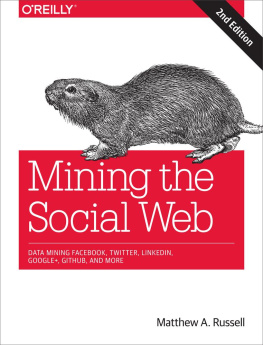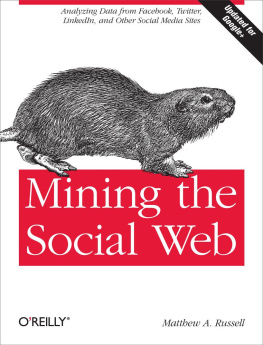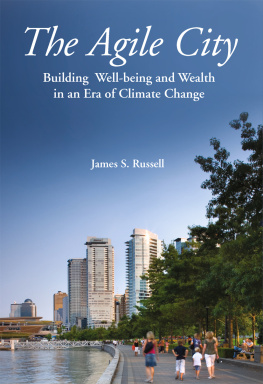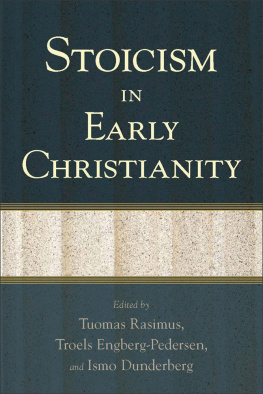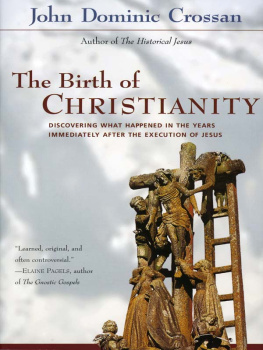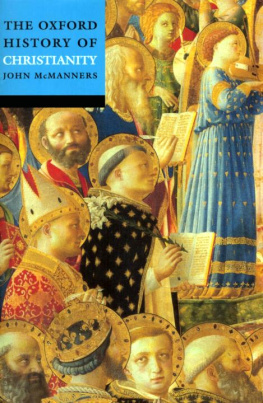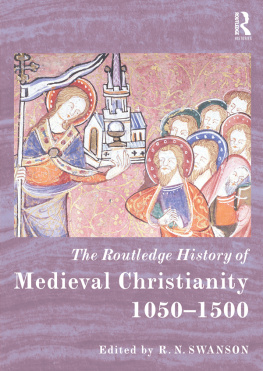THE GERMANIZATION OF EARLY MEDIEVAL CHRISTIANITY
The Germanization of Early Medieval Christianity
A Sociohistorical Approach to Religious Transformation
James C. Russell

Oxford University Press
Oxford New York
Athens Auckland Bangkok Bombay
Calcutta Cape Town Dar es Salaam Delhi
Florence Hong Kong Istanbul Karachi
Kuala Lumpur Madras Madrid Melbourne
Mexico City Nairobi Paris Singapore
Taipei Tokyo Toronto
and associated companies
in Berlin Ibadan
Copyright 1994 by James C. Russell
First published in 1994 by Oxford University Press, Inc.,
198 Madison Avenue, New York, New York 10016
First issued as an Oxford University Press paperback, 1996.
Oxford is a registered trademark of Oxford University Press, Inc.
All rights reserved. No part of this publication may be reproduced,
stored in a retrieval system, or transmitted, in any form or by any means,
electronic, mechanical, photocopying, recording, or otherwise,
without the prior permission of Oxford University Press.
Library of Congress Cataloging-in-Publication Data
James C. Russell
The Germanization of early medieval Christianity:
a sociohistorical approach to religious transformation / James C. Russell
p. cm. Revision of the authors thesis (Ph.D.)Fordham University 1990.
Includes bibliographical references and index.
ISBN 0-19-507696-6; ISBN 0-19-510466-8 (pbk.)
1. Church historyprimitive and early church, ca. 30600.
2. Sociology, ChristianHistoryEarly Church, ca. 30600.
3. Germanic tribesReligion. 4. EuropeChurch history. I. Title.
BR203.R87 1994 274.302dc20 9213182
1 3 5 7 9 8 6 4 2
Printed in the United States of America
on acid-free paper
To My Family
Preface
On June 30, 1988, Archbishop Marcel Lefebvre consecrated four priests of his Catholic traditionalist Society of Saint Pius X as bishops, thus triggering a schism within the Roman Catholic Church. Although the theological origins of Lefebvres disagreement with the Vatican may be traced to his rejection of certain documents promulgated at the Second Vatican Council (19621965), a significant degree of his popular support may be attributed to resentment toward the many liturgical changes which followed the Council. The most visible of these was the replacement of the traditional Latin Mass with the Novus Ordo Missae.
On a religiocultural level, this schism may be considered the end of the image of the Roman Catholic Church as a popular expression of European Christianity. For at least the preceding millennium, from the coronation of the Saxon King Otto I as Holy Roman Emperor by Pope John XII on February 2, 962, to the opening of the Second Vatican Council by Pope John XXIII on October 11, 1962, the religiocultural orientation of popular Roman Catholicism was predominantly European and largely Germanic.
The increased involvement of the Church in social-justice issues may also reflect an attempt to distance itself from the aristocratic character of a Germanized medieval Church and an attempt to recapture the religiocultural orientation of the early Church of the apostolic and patristic eras. One reason for this current direction may be that the present era, with its densely populated cosmopolitan areas that contain sizable, alienated underclasses, has a social environment somewhat more akin to the urbanized Roman Empire of late antiquity than to the rural-agrarian-warrior societies of early medieval Germanic Europe.
At the same time that this de-Europeanization of the Church is being pursued, however, the popularity of Catholic traditionalist movements among persons of European descent suggests that the Germanic elements within Christianity have not lost their appeal. It is hoped that, in addition to contributing to the study of religious transformation, the present inquiry may be of some value to those engaged in pastoral and missiological activities, as well as those pondering the forces involved in the development of their own personal religious identity.
The present book is a revised version of my 1990 doctoral dissertation in historical theology at Fordham University. I wish to thank my mentor, Richard F. Smith, S.J., for his guidance, patience, and kindness. To my readers, Louis B. Pascoe, S.J., and Jos Pereira, and my examiners, Ewert H. Cousins and Joseph F. Mitros, S.J., I owe much useful advice. To those who have read the manuscript, including G. Ronald Murphy, S.J., C. Scott Littleton, Edward Peters, J. N. Hillgarth, David Harry Miller, Peter Brown, Detlev Brand, Paul Math, and John Van Engen, I am also grateful. I wish to acknowledge my indebtedness to the late Robert E. McNally, S.J., who encouraged me to pursue my interest in the Germanic impact on early medieval Christianity. The staff of the Fordham University Library also deserves acknowledgment for their many years of professional service.
I wish to thank Robert A. Markus, Patrick J. Geary, G. Ronald Murphy, S.J., James Muldoon, Solomon A. Nigosian, Andrew P. Porter, and Edward C. Hobbs for providing me with pre-publication or unpublished versions of their work. To Cynthia A. Read, Paul Schlotthauer, and Peter Ohlin, my editors at Oxford University Press, I owe assistance and encouragement. My wife, Patricia, and my daughters, Megan and Marie, have patiently endured many sacrifices of time and pleasure to accommodate the completion of this book. Finally, to my parents, Roy and Agnes Russell, and to my aunts, Marie Wilson and Emilie Prucha, I am indebted for the continued support of my academic endeavors over the years.
J. C. R.
White Plains,
New York June 1993
Contents
Abbreviations
AHR | American Historical Review |
ASR | American Sociological Review |
JEH | Journal of Ecclesiastical History |
JIES | Journal of Indo-European Studies |
JL | Jahrbuch fr Liturgiewissenschaft |
MGH | Monumenta Germaniae Historica |
AA | Auctores Antiquissimi |
Ep. sel. | Epistolae selectae |
SRM | Scriptorum rerum Merowingicarum |
SSrG | Scriptores rerum Germanicarum in usum scholarum |
PL | Patrologiae cursus completus, series latina. J.-P. Migne, ed. (Paris, 1844) |
RBPH | Revue belge de philologie et dhistoire |
SCH | Studies in Church History |
Settimane | Settimane di studio del centro Italiano di studi sullalto medioevo |
(Spoleto: Centro Italiano di Studi sullAlto Medioevo, 1954) |
7 (1960) | Le chiesi nei regni dellEuropa occidentale e i loro rapporti con Roma all800. |
14 (1967) | La conversione al Cristianesimo nellEuropa dellalto medioevo. |
36 (1989) | Santi e demoni nellalto medioevo occidentale. |
ZKG | |
Next page

